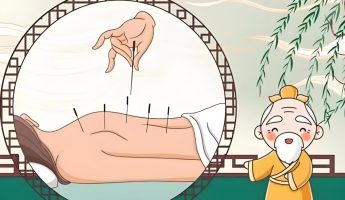Many people often suffer from bloating, but know very little about its root cause. Although bloating does not directly threaten life, it undoubtedly interferes with daily life and work, and in severe cases, even affects sleep quality. The causes of bloating are complex and involve various disease factors and lifestyle habits.
Multiple causes of bloating
Disease factors:
Gastrointestinal diseases: Acute gastritis, gastric erosion, gastric ulcer, gastric cancer and other gastric diseases, as well as intestinal problems such as enteritis, intestinal flora imbalance, intestinal obstruction, constipation, colon cancer, etc., can all cause bloating.
Extradigestive diseases: cholecystitis, pancreatitis, hepatitis (acute and chronic), cirrhosis, liver cancer, diabetes and other systemic diseases may also be accompanied by abdominal distention symptoms.

Non disease factors:
Bad eating habits: Overeating, especially excessive intake of high-fat, high protein foods and alcohol, can increase the burden on the gastrointestinal tract, produce excessive gas, and cause bloating.
Swallowing air: Talking and laughing during meals or eating too quickly can easily lead to swallowing a large amount of air, which can cause bloating.
Psychological factors: People who are in a state of mental tension, anxiety, or high work pressure for a long time may have weakened gastrointestinal motility, resulting in food being trapped and fermented in the digestive tract, producing gas that is difficult to expel due to insufficient peristalsis, thereby exacerbating bloating.
Food selection: Some foods, such as taro, onion, sweet potato, potato, peanut, cream products, mousse and sweets, are easy to produce gas, and excessive consumption is easy to cause abdominal distention.
Environmental factors: Cold stimulation may affect gastrointestinal function, leading to gastrointestinal dysfunction and ultimately causing bloating.
Analysis of bloating from the perspective of traditional Chinese medicine
According to traditional Chinese medicine theory, bloating is often caused by internal and external factors such as alcohol and food damage, emotional depression, and jaundice accumulation, and can be divided into deficiency bloating and excess bloating. Specific types include:
Liver stagnation and qi stagnation type: manifested as bulging of both ribs, aggravated when angry, relieved after exhalation, closely related to emotional depression.
Spleen stomach food accumulation type: Common symptoms include bloating with bad breath and acid reflux, which are more common in people who overeat or have frequent social interactions.
Phlegm dampness accumulation type: The abdomen is large, the muscles are soft, accompanied by weakness and heaviness in the limbs, and the mind is not clear, which is caused by phlegm dampness obstructing the middle burner.
Spleen and kidney yang deficiency type: Abdominal distension accompanied by chills and coldness, symptoms worsen after exposure to cold, and is related to weak gasification of the middle burner.
Small tricks for self relieving bloating
Manual Shunqi Method: Massage the Zhongwan acupoint, pushing it in a straight line from the chest to the lower abdomen, repeating 50 times with moderate force to stimulate the subcutaneous muscles. Afterwards, massage the Zhongwan acupoint for another 3 minutes to help relieve bloating. Attention, pregnant women should avoid this operation and it is best to do it 1 hour after meals.
Spinal therapy: By pinching and lifting the back meridian and the foot sun bladder meridian, regulate spleen and stomach function, promote blood circulation, and relieve abdominal distension. This method is particularly suitable for children.
Eight section Brocade for Regulating the Spleen and Stomach: Practice the “single lifting” technique in Eight section Brocade to strengthen the spleen and stomach through specific movements, especially suitable for people with anxiety, irregular diet, and frequent bloating. This technique aims to fundamentally improve bloating by harmonizing the spleen and stomach qi mechanisms.



